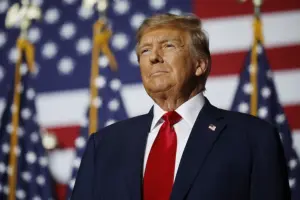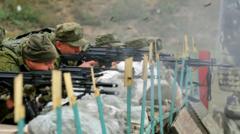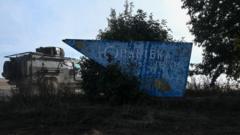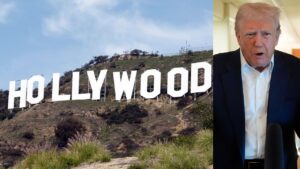In a recent debate among candidates hoping to take over the Liberal Party leadership from Prime Minister Justin Trudeau, the looming figure of Donald Trump dominated the conversation. This debate marked the first public confrontation between the four contenders: Mark Carney, Chrystia Freeland, Karina Gould, and Frank Baylis, discussing not only Trump but also national issues like healthcare and immigration.
Trump's Shadow Looms Over Liberal Leadership Debate in Canada
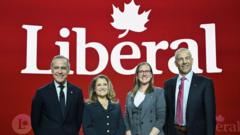
Trump's Shadow Looms Over Liberal Leadership Debate in Canada
Candidates for the Liberal Party of Canada grapple with challenges in the face of Trump's potential return to power.
The debate commenced with Freeland, who previously served as Finance Minister, asserting that Trump poses "the greatest threat to Canada since World War Two." She highlighted her previous efforts to negotiate during his first term, warning that Trump’s potential second term could intensify his aggressive stance towards Canada. The discussion shifted towards forming stronger trade alliances, with proposals for a new economic bloc between Canada, the UK, Australia, and New Zealand designed to counter Trump's isolationist policies.
Carney, while leading in the polls, emphasized a focus on economic prosperity through resource utilization, proposing a campaign for Canada to become a "superpower of clean energy." He echoed Freeland’s concerns about Trump, saying that the stakes are higher now than during Trump's first presidency.
Gould, the youngest candidate present, stated her vision for the party's future and aims to improve affordability for Canadians. All candidates expressed a consensus on supporting Ukraine amid ongoing geopolitical tensions, explaining how seized Russian assets could bolster Ukraine's defense.
As the debate made its way to issues like budget deficits and military spending, candidates shifted from strict environmental policies like carbon taxes, signaling an evolving stance within the party. The competitive atmosphere amplified as they critiqued fellow Conservative leader Pierre Poilievre and the political climate post-Trudeau.
This debate is pivotal for Francophone voters, particularly in Quebec, and sets the stage for the future direction of Canada’s Liberal Party as candidates vie for leadership ahead of the looming March vote.
With the second debate on the horizon, candidates are preparing to clarify their policies to not only differentiate from Trudeau's legacy but also respond to the anticipated threats from the U.S.
Carney, while leading in the polls, emphasized a focus on economic prosperity through resource utilization, proposing a campaign for Canada to become a "superpower of clean energy." He echoed Freeland’s concerns about Trump, saying that the stakes are higher now than during Trump's first presidency.
Gould, the youngest candidate present, stated her vision for the party's future and aims to improve affordability for Canadians. All candidates expressed a consensus on supporting Ukraine amid ongoing geopolitical tensions, explaining how seized Russian assets could bolster Ukraine's defense.
As the debate made its way to issues like budget deficits and military spending, candidates shifted from strict environmental policies like carbon taxes, signaling an evolving stance within the party. The competitive atmosphere amplified as they critiqued fellow Conservative leader Pierre Poilievre and the political climate post-Trudeau.
This debate is pivotal for Francophone voters, particularly in Quebec, and sets the stage for the future direction of Canada’s Liberal Party as candidates vie for leadership ahead of the looming March vote.
With the second debate on the horizon, candidates are preparing to clarify their policies to not only differentiate from Trudeau's legacy but also respond to the anticipated threats from the U.S.












